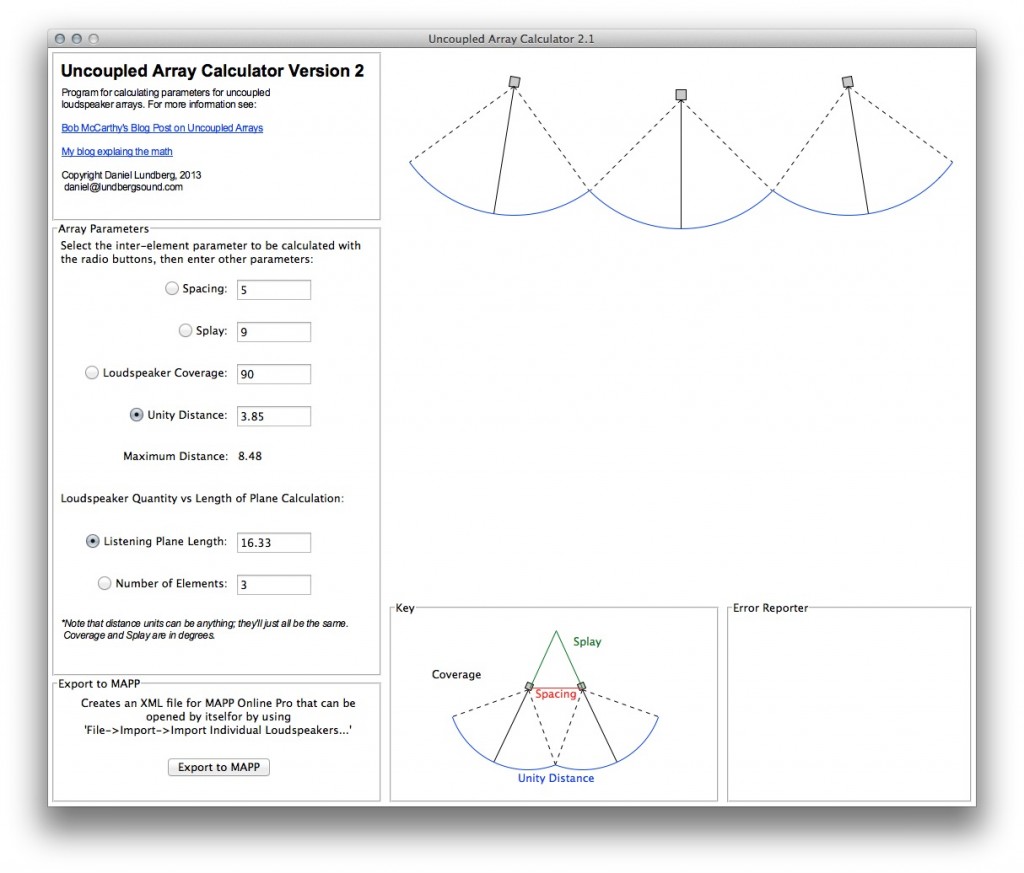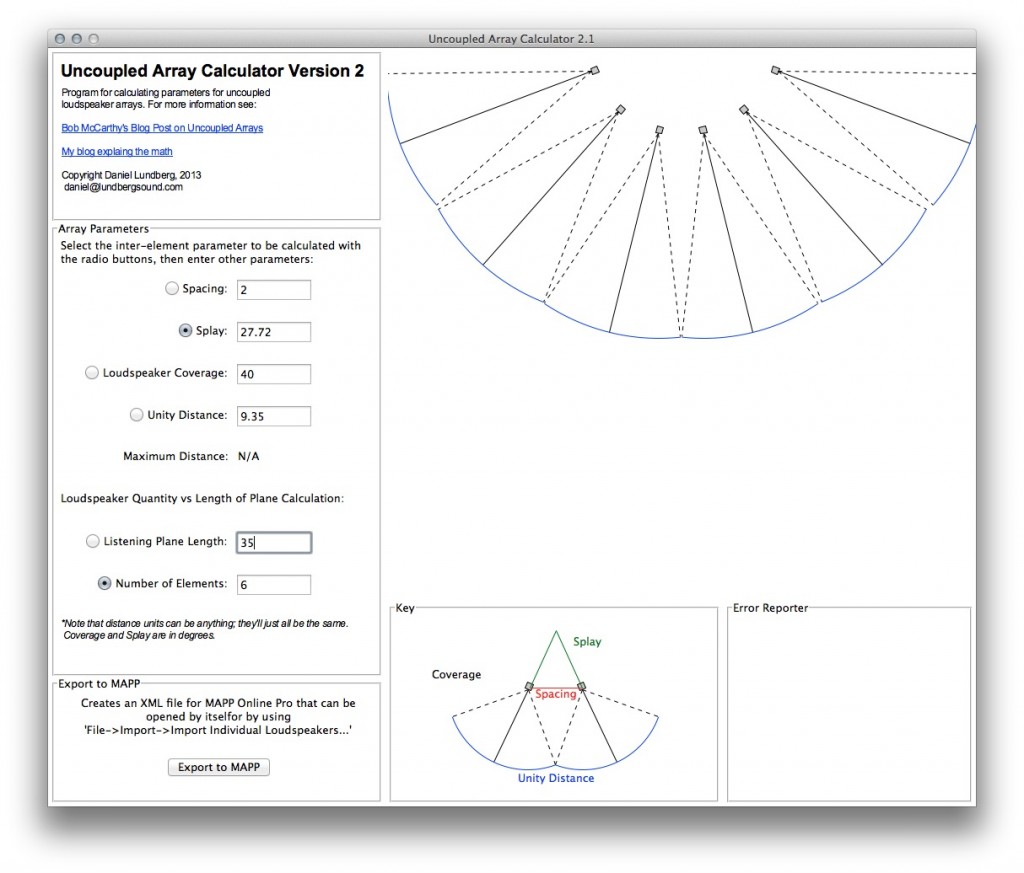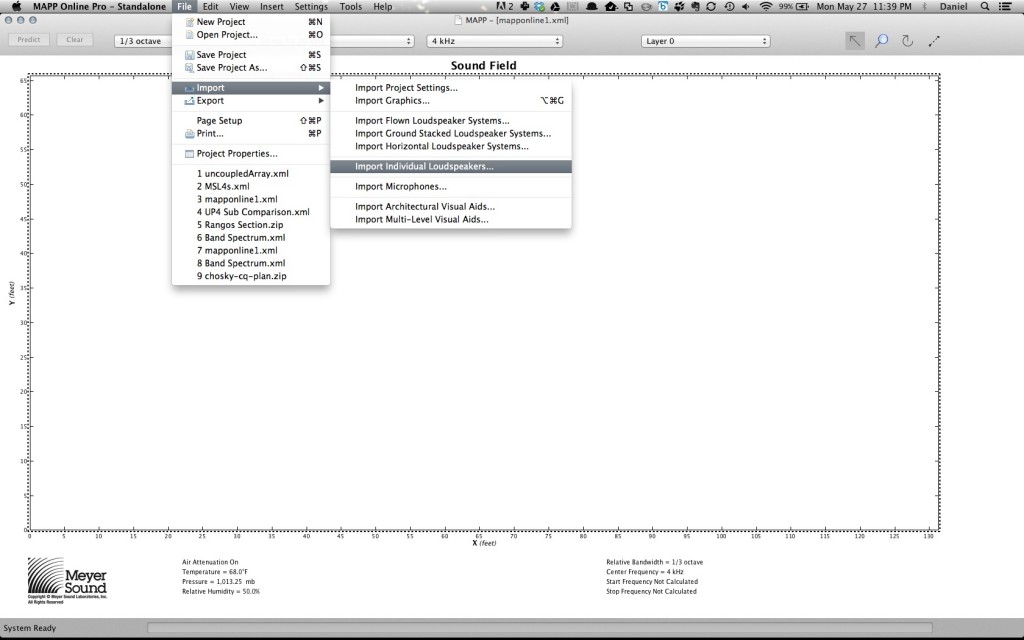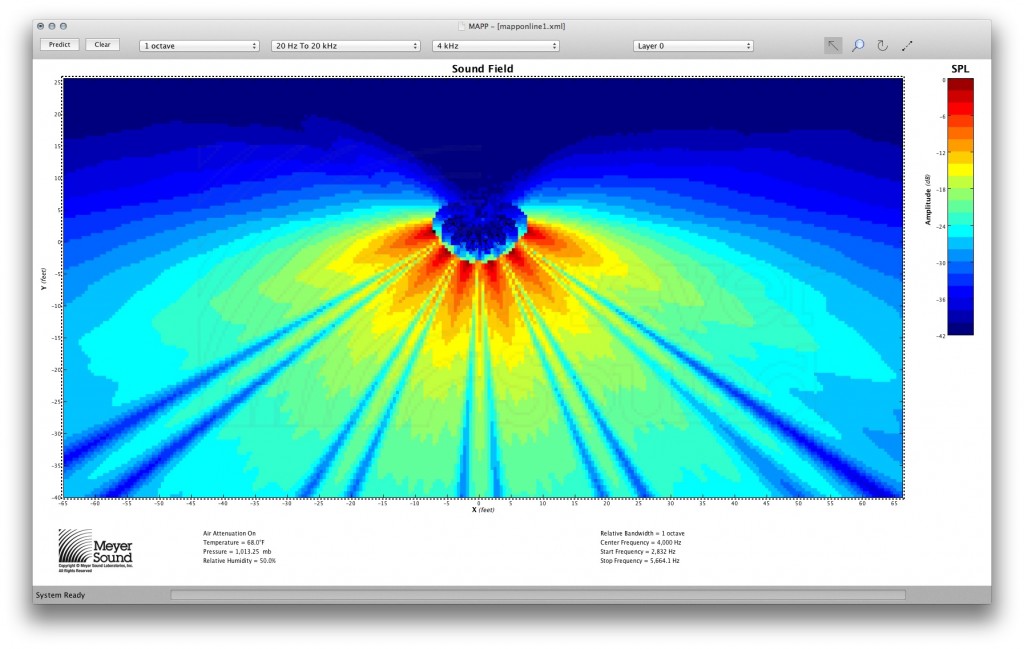I’ve taken the trig for designing uncoupled loudspeaker arrays and made it into its own piece of software. It is a big UI improvement over the old Excel sheet, it draws a diagram of the array, and it can export arrays as XML files for Meyer’s MAPP Online Pro. It’s written in Python, but I’ve created standalone versions for both Mac and PC.

Each array parameter is on the left, with radiobuttons to select which should be calculated. With any three parameters, it’ll spit out the fourth automatically, and redraw the diagram. You can have a bunch of loudspeakers, with quantity entered manually or calculated from a listening plane length/perimeter.

To export an array to MAPP, click the button and follow the few steps to enter a loudspeaker model and ‘save as’ destination. In MAPP, go to File->Import->Import Individual Loudspeakers…, and that’s it.

Here’s the same array from above dropped into our MAPP file:
This could also come in handy for building arrays independently of the trig, i.e., it’s a quick way of creating an array of a bunch of loudspeakers, like a 50-element straight subwoofer array.
Update 6/13/13: Thanks to feedback from Dave Stagl, Bob McCarthy, we’re now on 2.2 featuring some bug fixes and things that should make operation clearer.


Hola Daniel como estas? este link me lo paso Magú Ramírez, serías tan amable de pasarme vía mail la versión actula del Uncoupled Array Calculator , me gustaría probarlo, en espera de una favorable respuesta, te dejo mis mas cordiales saludos! Gabriel ( Técnico de Sistemas / Jujuy / Argentina )
Coming back in force Daniel! Can’t wait to try it.
please help me how create account for mapp online pro i had downloaded mapp online pro but wants login name and password
http://meyersound.com/products/mapponline/pro/register/
Hi Daniel, i’d like to try the mac version of your software….thanks a lot for sharing your beautiful work.
Cheers,
Luigi.
Hi Daniel,
I’d like to try your new Mac version 2.
furthermore I’d like to know what formula you use to calculate the M factor as described in Bob’s log and also how you calculate the Dlim percentages in the uncoupled point source table. It seems to ben Bob’s tables are based on guessing……?
greetings,
Jan
Hey Jan,
Thanks for visiting – I’ll email you the Mac version.
I’m not using the Bob’s formulae exactly, but rather those found at http://www.lundbergsound.com/?p=130
Bob’s formulae use different intermediate variables, FAR and the Unity Distance Multiplier M; as I recall, Bob did drawings of various uncoupled arrays with known parameters and then measured the resultant unknown in the drawing to get FAR and M, not guessing, so the two should give you the same results.
Best,
Daniel
should read: seems to me Bob’s tables etc…..
Any chance of a download?
Hey David,
I’m interested in getting a (PC) copy of the Uncoupled array calculator.
Thank you,
cheers
ferrit
Hey Daniel!
I was just on a call working on a Constellation system and one of the guys cracked this open to arrange frontfills and I had never seen it before. So cool! Kudos.
Brad
Thanks, Brad!